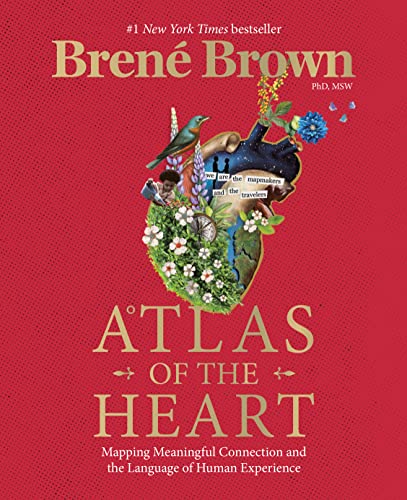Atlas of the Heart: Mapping Meaningful Connection and the Language of Human Experience
Brené Brownamazon.com
Saved by Irene Forti and
Atlas of the Heart: Mapping Meaningful Connection and the Language of Human Experience

Saved by Irene Forti and
There are too many people in the world today who decide to live disappointed rather than risk feeling disappointment.
Here is my definition of comparison: Comparison is the crush of conformity from one side and competition from the other—it’s trying to simultaneously fit in and stand out.
The second watch-out is about perfectionism. There’s actually a “perfectionism social disconnection model,” and this research shows that people who are high on the perfectionistic traits scale behave in ways that cause perceived and actual exclusion/rejection by others. In other words, my perfectionism drives me to show up in ways that lead people
... See moreWe can never truly belong if we are betraying ourselves, our ideals, or our values in the process. That is why it’s a mistake to think that belonging is passive and simply about joining or “going along” with others. It’s not. Belonging is a practice that requires us to be vulnerable, get uncomfortable, and learn how to be present with people withou
... See moreI understood that people would do almost anything to not feel pain, including causing pain and abusing power, and I understood that there were very few people who could handle being held accountable for causing hurt without rationalizing, blaming, or shutting down.
And loneliness tells us that we need social connection—something as critical to our well-being as food and water.
It’s awful that the same substances that take the edge off anxiety and pain also dull our sense of observation. We see the pain caused by the misuse of power, so we numb our pain and lose track of our own power. We become terrified of feeling pain, so we engage in behaviors that become a magnet for more pain. We run from anger and grief straight in
... See moreI remember reading this quote from Elie Wiesel years ago and it’s become a practice for me—even when I’m enraged or afraid: “Never allow anyone to be humiliated in your presence.”
She taught us to never look away from pain. The lesson was simple and clear: Don’t look away. Don’t look down. Don’t pretend not to see hurt. Look people in the eye. Even when their pain is overwhelming. And when you’re hurting and in pain, find the people who can look you in the eye.
This can take the shape of numbing, foreboding joy, being cynical or critical, or just never really fully engaging.